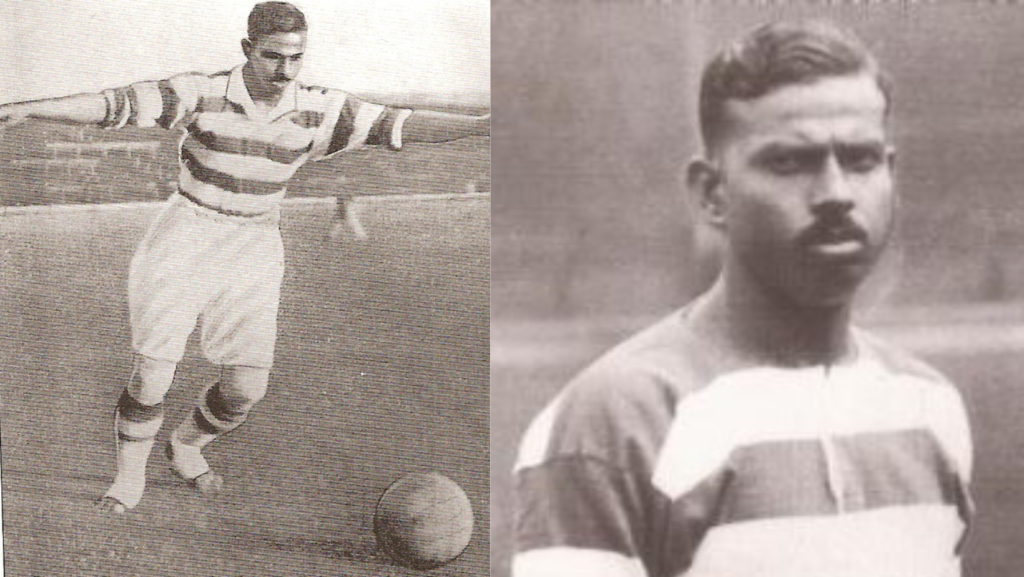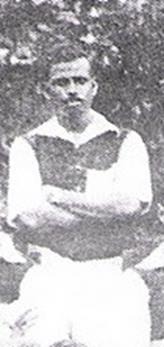
Following Mohammed Salim’s death in 1989, a brief obituary in the Amrita Bazar Patrika declared:
Mohammed Salim (Sr) a member of the legendary Mohammedan Sporting Club side that claimed five successive Calcutta senior football league titles in the thirties died in Calcutta on Wednesday morning. He was 76. A right winger in his playing days, he was intimately connected with many sports clubs and took active interest in training youngsters. He is survived by his wife, four sons and three daughters.
When his obituary ignored his feat of having played for Celtic FC with distinction, it is hardly surprising that he remains unmentioned in most works on Indian football. This treatment is unjust, more so in view of his extraordinary performances for Celtic. While Baichung Bhutia played for a second-division Bury FC, and failed to win a permanent place in first XI, Salim, during his brief stint at Celtic, established himself as a key member of the team. And this was Celtic, the first British winners of the European Cup (1967).
Commenting on his extraordinary skill, the Scottish Daily Express had declared:
Ten twinkling toes of Salim, Celtic FC’s player from India hypnotised the crowd at Parkhead last night in an alliance game with Galston. He balances the ball on his big toe, lets it run down the scale to his little toe, twirls it, hops on one foot around the defender, then flicks the ball to the centre who has only to send it into goal. Three of Celtic’s seven goals last night came from his moves. Was asked to take a penalty, he refused. Said he was shy. Salim does not speak English, his brother translates for him. Brother Hasheem thinks Salim is wonderful – so did the crowd last night.
This comment, published on August 29, 1936, is now a yellowing, almost faded, piece of history crumbling at the slightest of touches. Rashid Ahmed, Salim’s second son, handed it over to us with a request – he wanted readers to know the truth, that his father was one of the earliest Indian footballers to have played in Europe.
Asked whether Celtic had rewarded Salim monetarily, Rashid narrated a fascinating tale. When, after a few months in Scotland, Salim began to feel homesick and was determined to return to India, Celtic pleaded him to play for one more season. “Celtic tried to persuade my father to stay by offering to organise a charity match in his honour, giving him five per cent of the gate proceeds,” said Rashid. “My father did not realise what five per cent would amount to and said he would give his share to orphans who were to be special invitees for the match. Five per cent came to £1,800 [adjusting for inflation, this would be around Rupees 1.6 crores today] but although my father was astonished, he kept his word.” In doing so, Salim earned unique recognition for himself and his country in the eyes of the Scots. His performances for Celtic in the limited number of matches that he played also demonstrated that bare-footed Indians could match the British. This belief may have inspired his colleagues at Mohammedan Sporting to win five straight Calcutta Football League titles (1934-38), defeating leading European teams in the process.

Many years later, Rashid wrote to Celtic stating that his father was in distress and that he needed money for his father’s treatment. In his words:
I had no intention of asking for money. It was just a ploy to find out if Mohammed Salim was still alive in their memory. To my amazement, I received a letter from the club. Inside was a bank draft for £100. I was delighted, not because I received the money but because my father still holds a pride of place in Celtic. I have not even cashed the draft and will preserve it till I die.
In colonial India, trying to challenge British superiority was the most difficult task of all. Salim achieved this seemingly impossible task through his football. In a nation plagued by religious violence, political and economic uncertainties, his football served a purpose that went beyond the boundary. It helped colonised Indians reinvent themselves, reassuring them that the might of the colonial state could be successfully subverted on the sporting field. While on earlier occasions, achievement in sport helped colonised Indians capture the imagination of the west, Salim’s triumphs have hardly been given their due in the annals of our history.